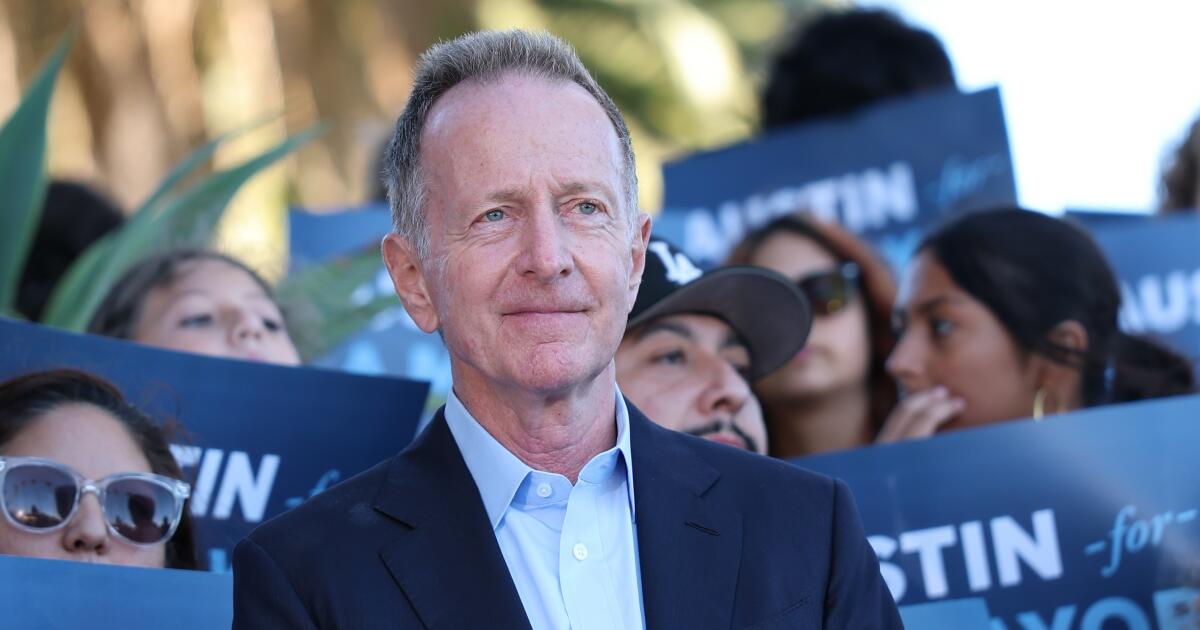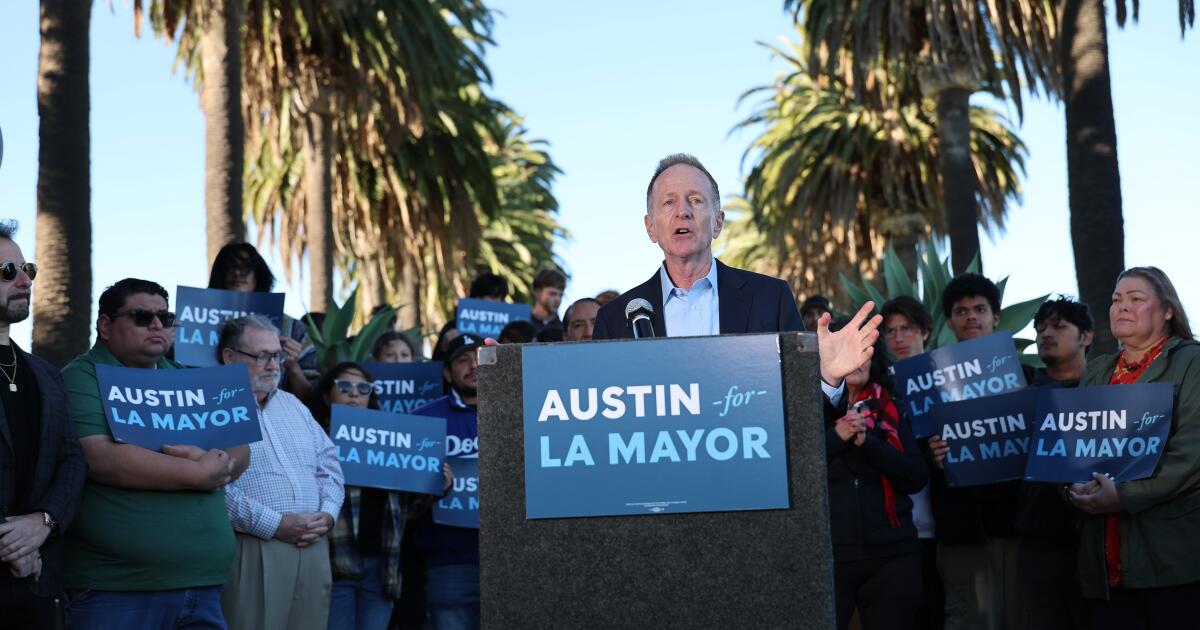Austin Beutner drops out of L.A. mayor’s race, citing daughter’s death
Former Los Angeles schools Supt. Austin Beutner said Thursday that he is dropping out of the race for mayor, citing the recent death of his 22-year-old daughter.
Beutner, one of several candidates seeking to oust Mayor Karen Bass in the June 2 primary, made his announcement a month after the death of Emily Beutner, the youngest of his four children.
“My family has experienced the unimaginable loss of our beloved daughter Emily. She was a magical person, the light of our lives. We are still in mourning,” Beutner said in a statement. “A successful campaign, and more importantly the job of Mayor, requires someone who is committed 24/7 to the job. Family has always come first for me. That is where I need to be at this time.”
Beutner’s daughter died Jan. 6 at a hospital, according to officials with the Los Angeles County medical examiner’s office, which has not yet determined a cause.
The announcement comes as the lineup of candidates is still in flux, with Saturday’s filing deadline fast approaching.
L.A. County Supervisor Lindsey Horvath has been weighing a run, as has Maryam Zar, founder of the Palisades Recovery Coalition. Real estate developer Rick Caruso, who lost to Bass in 2022, is once again considering a mayoral bid — even though he publicly ruled that out last month — after The Times reported Wednesday that Bass was involved in watering down an after-action report on the Palisades fire.
Bass’ team said the mayor did not make changes to the report, saying “there is absolutely no reason why she would request those details be altered or erased when she herself has been critical of the response to the fire.”
Bass, who is seeking a second four-year term, already faces challenges from reality television star Spencer Pratt, a Republican who lost his home in the Palisades fire; Rae Huang, a community organizer who is also a democratic socialist; and Adam Miller, a tech entrepreneur and nonprofit executive.
If Bass secures more than 50% of the vote, she will win outright, avoiding a November runoff.
Beutner, who entered the contest in October, spent much of his campaign denouncing Bass’ handling of the Palisades fire, which destroyed thousands of homes and left 12 people dead. The fire severely damaged Beutner’s home in Pacific Palisades and completely destroyed the residence of Beutner’s mother-in-law.
During the early months of his campaign, Beutner also criticized the mayor for hiking the fees that the city charges for trash pickup, sewer maintenance and other basic services.
In his statement withdrawing from the race, Beutner continued to highlight some of the problems he discussed during his campaign.
“Los Angeles is a special place, but every day it’s becoming less affordable, less safe and a more difficult place to live,” he said. “To solve these problems, new ideas are needed along with leadership capable of implementing them.”
Beutner’s daughter, a student at Loyola Marymount University, was found last month by the side of a highway in Palmdale in a “state of medical distress,” according to the Los Angeles County Sheriff’s Department. She later died at a hospital.
After that, Beutner largely disappeared from the public eye, canceling more than a dozen campaign events and asking the public for privacy.

